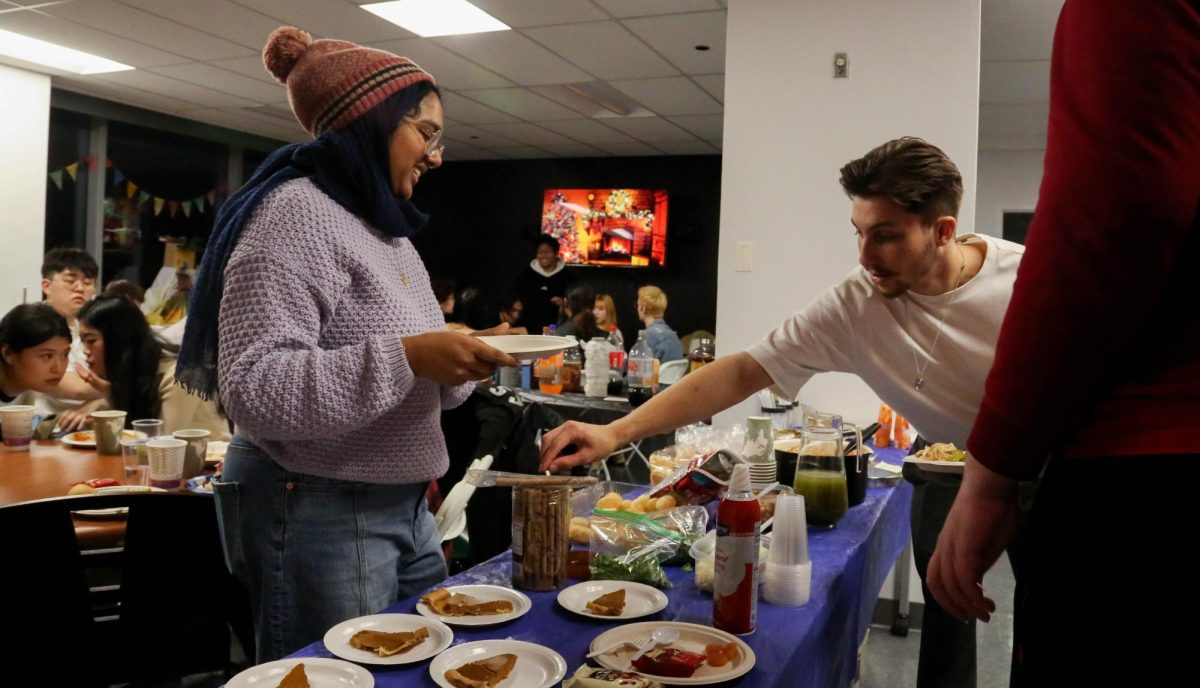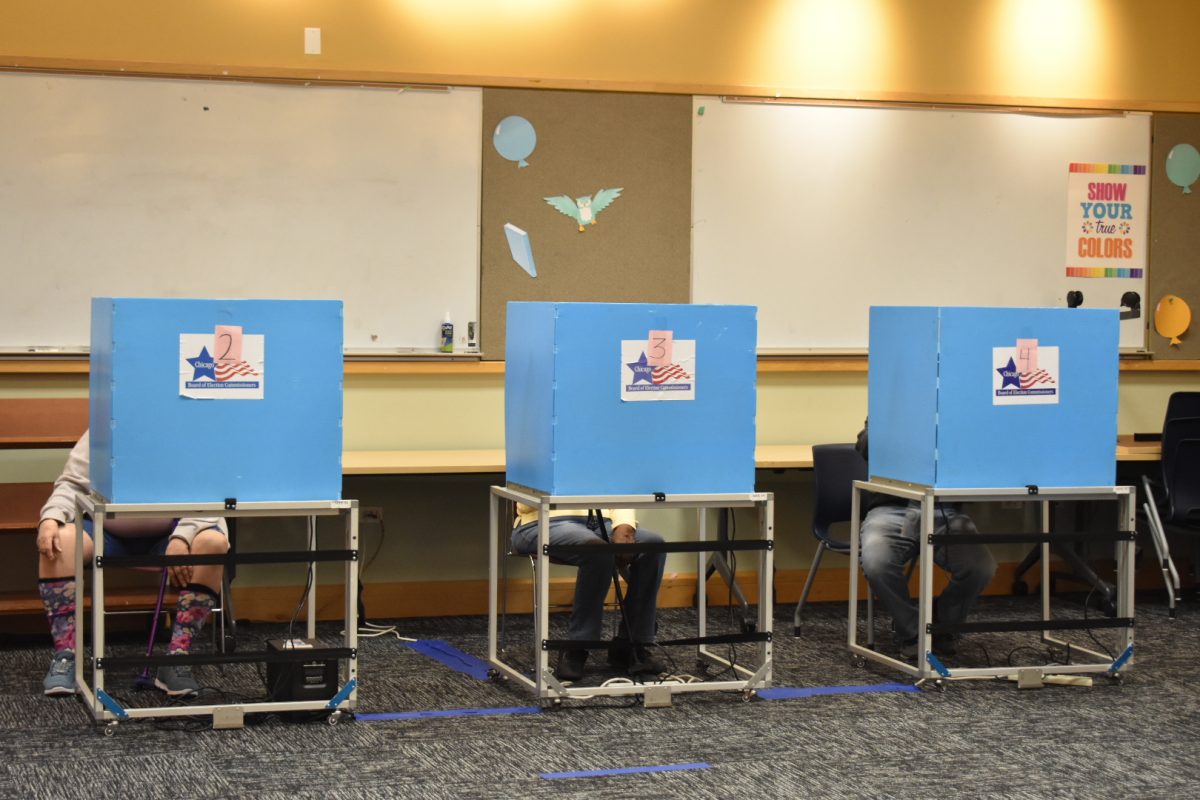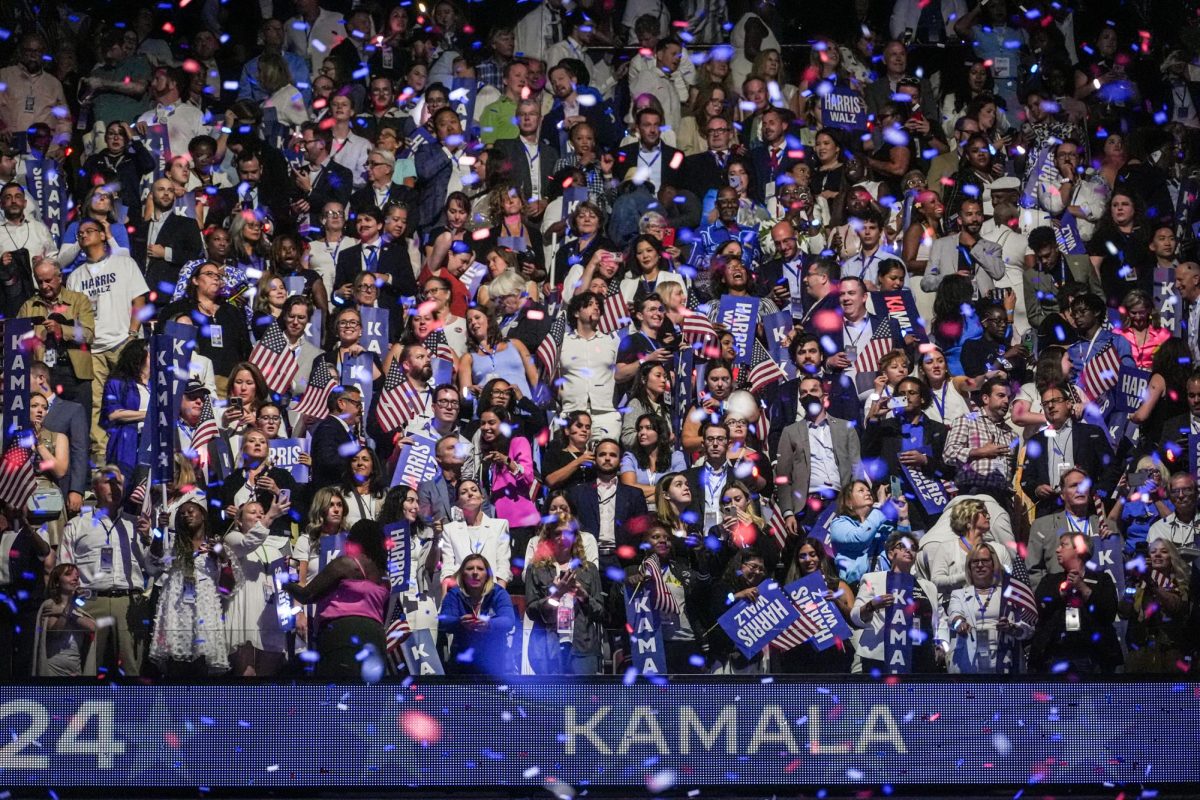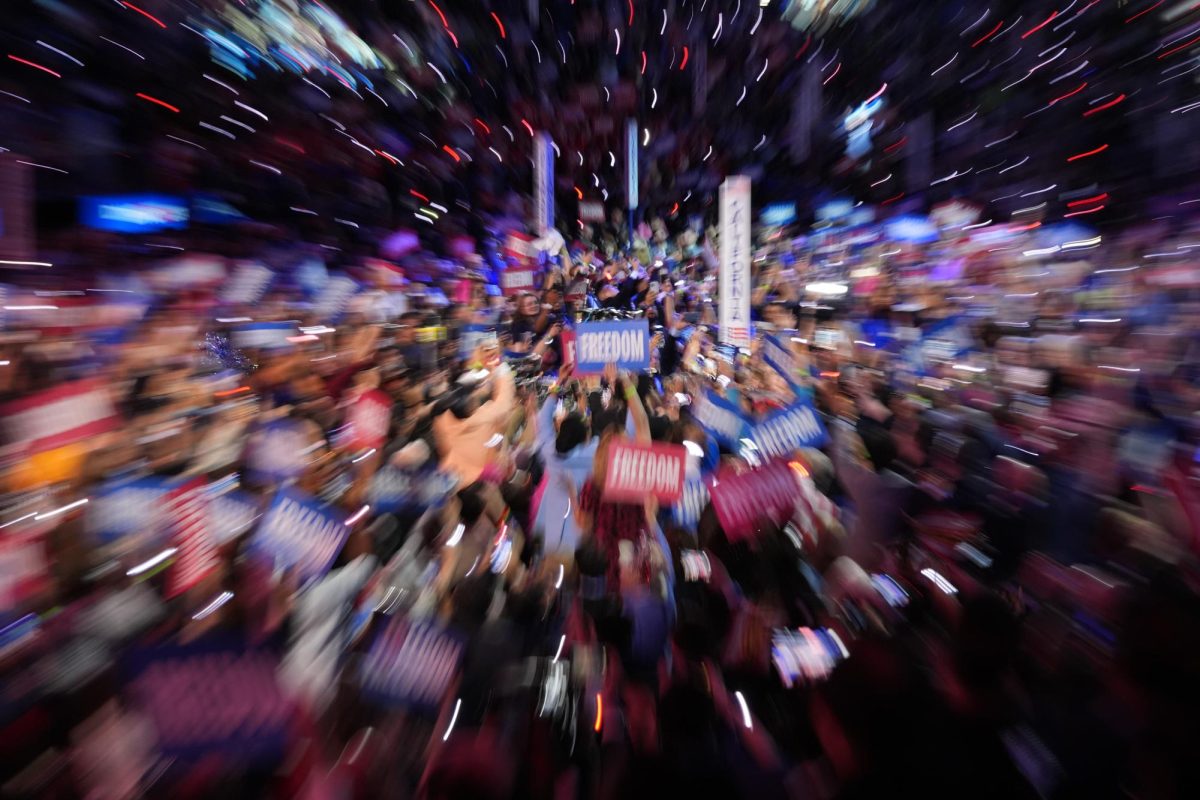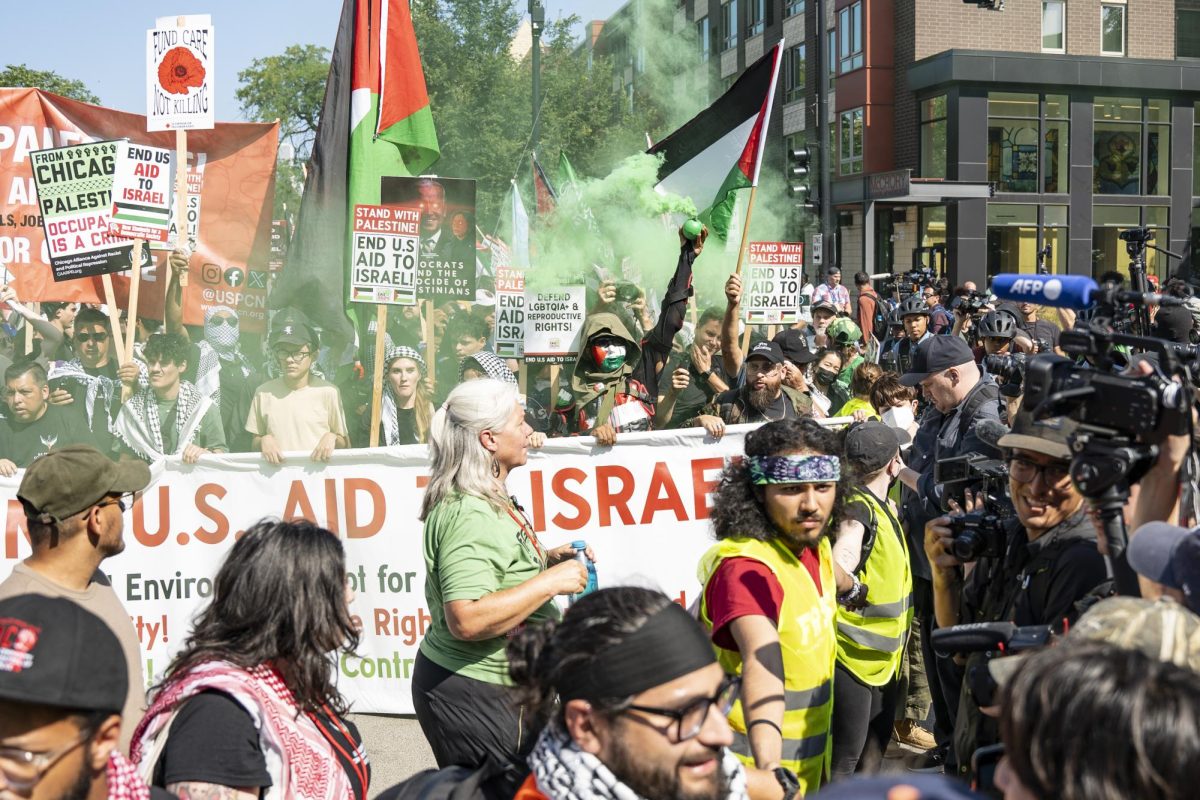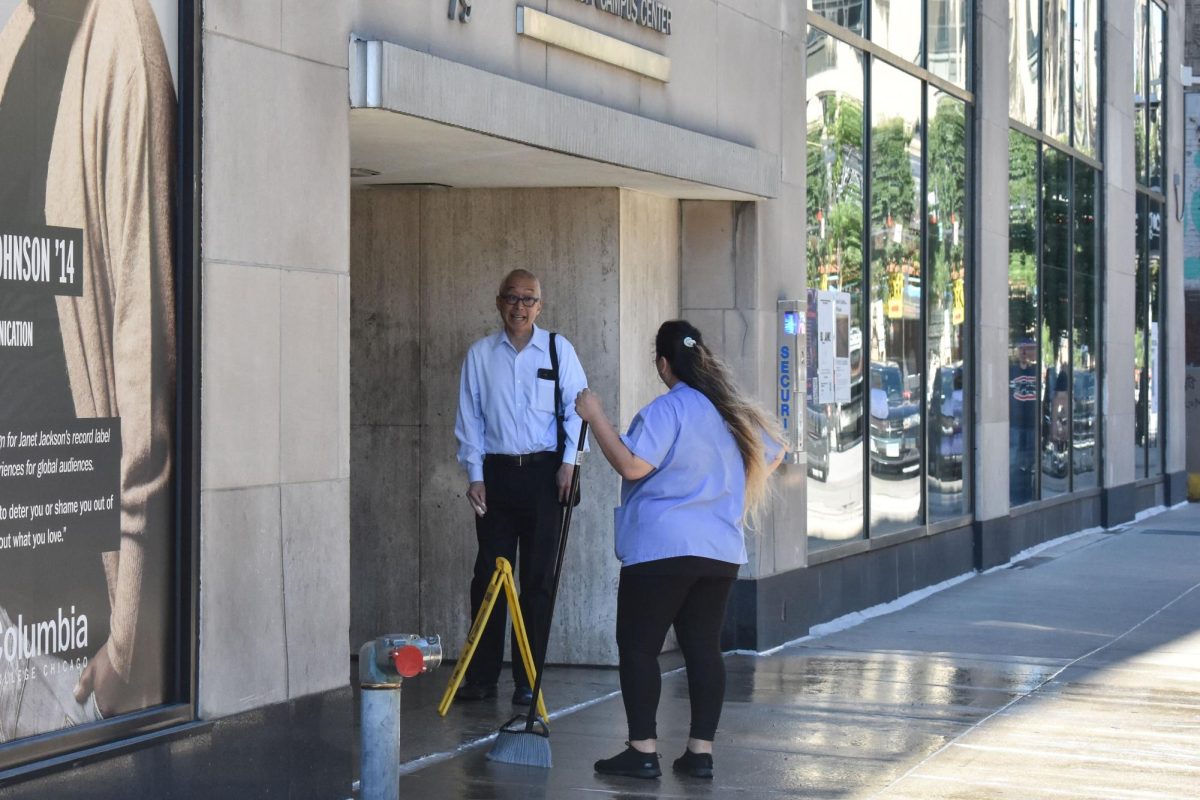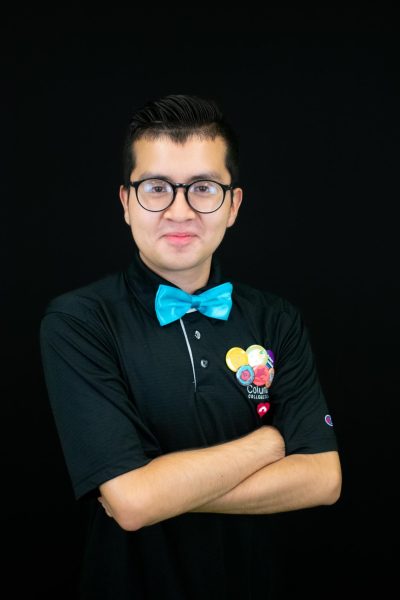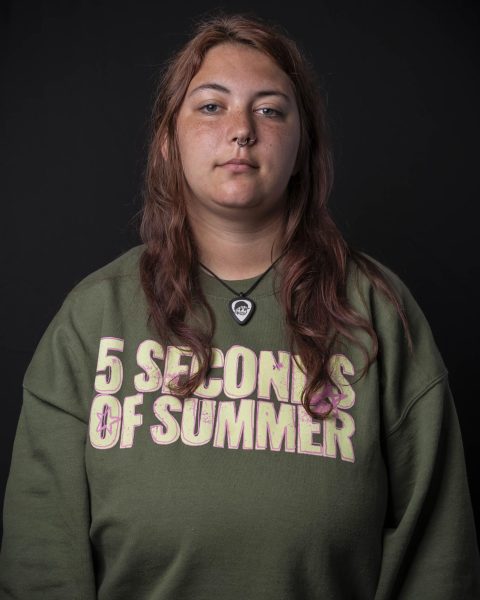For many of the students who gathered for a Thanksgiving-themed celebration this week on campus, it was not only their first time attending Friendsgiving but also the first time they’ve gone through a strike.
Over traditional pumpkin pie and crepes, the students, most of them international students, socialized and listened to holiday and global music.
The Friendsgiving event, held on the fourth floor of the 618 S. Michigan Ave. building on Thursday night, Nov. 21, was a long-awaited collaboration between Asian Student Organization and International Students and Scholar Services, said ASO President Paris Catura.
Abraham Sangye, executive board member of ASO, said it was great to get together with so many people. An estimated 25 students attended the event, which also featured potluck foods shared by students.
“It’s nice to have a bit of a found family thing, especially for international students that are physically very far away from their homes and their families,” Sangye said.
Kate Julianne Larroder, a sophomore communications major, came to the event to get to know more people, especially international students.
“I’m glad to see students that I’d known from work and also for the crepes and other food,” she said.
This event also gave students a chance to pause during what many said has been a very stressful time for them, with so much uncertainty, especially for them as international students.
Columbia’s part-time faculty union has been on strike since Monday, Oct. 30, with hundreds of classes each day not held for more than four weeks, marking one of the longest part-time faculty strikes in the history of higher education.
“We’ve been able to use ASO events as a space for students to come in, settle down and take some time off of their workload,” Catura said. “We wanted to make sure that students are okay at this time of the year, especially during the strike.”
Mario Jimenez, a junior photography major, who attended Friendsgiving, grew up in Chicago.
“I’ve experienced a strike back in elementary school when Chicago Public School teachers were asking for a raise, too,” Jimenez said. “What’s different about this strike is I’m actually feeling the consequences. Like academically, I’m missing out on the education that I’m trying to get, which is why I attend Columbia.”
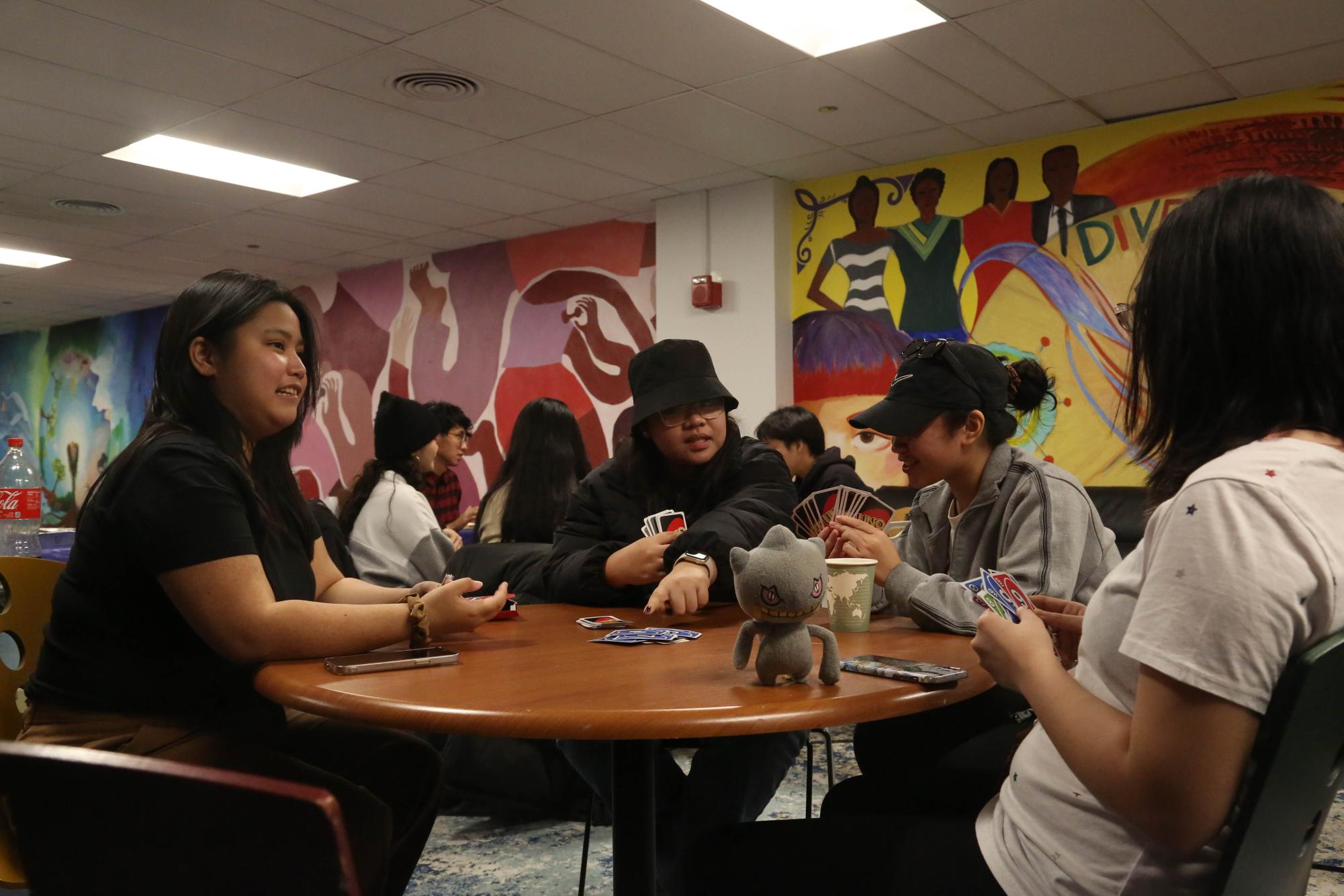
Karina Li, an international transfer student majoring in arts management, is from China.
“For most Chinese schools the government will give the financial support for the school,” Li said. “I have never faced this kind of strike before. One or two days is normal, but two or three weeks is crazy.”
Chané Fischer, a BFA directing major from South Africa, said she’s been using time from the past few weeks to work on a project for one of her classes.
“It was kind of nice to be able to focus on my thesis form, but I’m ready to get back into classes and continue with my other courses that I’m most excited about because it’s the time at the end of the semester,” Fischer said.
Larroder, who is from the Philippines, said the school she previously attended, the University of the Philippines, also had strikes.
“But it never really affected our classes. This is actually the first time that I’m kind of lost about how to do all this,” Larroder said, who has extended family in the Chicago area.
Sangye said his roommate, an international student, is facing the dilemma of wanting to transfer from Columbia but is unsure how that will impact them.
“For international students it’s like this is the only way they can stay in the country and there’s not any information on what they should do,” Sangye said. “We’re backed into a corner.”


